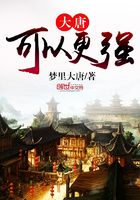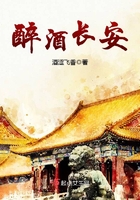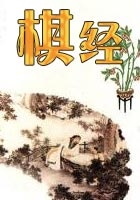Introduction The literature of our time, as of all the centuries of Christendom, is full of allusions to the gods and goddesses of the Greeks and Romans. Occasionally, and, in modern days, more often, it contains allusions to the worship and the superstitions of the northern nations of Europe. The object of this book is to teach readers who are not yet familiar with the writers of Greece and Rome, or the ballads or legends of the Scandinavians, enough of the stories which form what is called their mythology, to make those allusions intelligible which one meets every day, even in the authors of our own time.
The Greeks and Romans both belong to the same race or stock. It is generally known in our time as the Aryan family of mankind;and so far as we know its history, the Greeks and Romans descended from the tribes which emigrated from the high table-lands of Northern India. Other tribes emigrated in different directions from the same centre, so that traces of the Aryan language are found in the islands of the Pacific ocean.
The people of this race, who moved westward, seem to have had a special fondness for open air nature, and a willingness to personify the powers of nature. They were glad to live in the open air, and they specially encouraged the virtues which an open-air people prize. Thus no Roman was thought manly who could not swim, and every Greek exercised in the athletic sports of the palaestra.
The Romans and Grecian and German divisions of this great race are those with which we have most to do in history and in literature. Our own English language is made up of the dialects of different tribes, many of whom agreed in their use of words which they had derived from our Aryan ancestry. Thus our substantive verb I AM appears in the original Sanscrit of the Aryans as ESMI, and m for ME (MOI), or the first person singular, is found in all the verbal inflections. The Greek form of the same verb was ESMI, which became ASMI, and in Latin the first and last vowels have disappeared, the verb is SUM. Similar relationships are traced in the numerals, and throughout all the languages of these nations.
The Romans, like the Etruscans who came before them, were neither poetical nor imaginative in temperament. Their activity ran in practical directions. They therefore invented few, if any stories, of the gods whom they worshipped with fixed rites. Mr.
Macaulay speaks of these gods as "the sober abstractions of the Roman pantheon." We owe most of the stories of the ancient mythology to the wit and fancy of the Greeks, more playful and imaginative, who seized from Egypt and from the East such legends as pleased them, and adapted them in their own way. It often happens that such stories, resembling each other in their foundation, are found in the Greek and Roman authors in several different forms.
To understand these stories, we will here first acquaint ourselves with the ideas of the structure of the universe, which the poets and others held, and which will form the scenery, so to speak, of the narratives.
The Greek poets believed the earth to be flat and circular, their own country occupying the middle of it, the central point being either Mount Olympus, the abode of the gods, or Delphi, so famous for its oracle.
The circular disk of the earth was crossed from west to east, and divided into two equal parts by the SEA, as they called the Mediterranean, and its continuation the Euxine.
Around the earth flowed the RIVER OCEAN, its course being from south to north on the western side of the earth, and in a contrary direction on the eastern side. It flowed in a steady, equable current, unvexed by storm or tempest. The sea, and all the rivers on earth, received their waters from it.
The northern portion of the earth was supposed to be inhabited by a happy race named the Hyperboreans [this word means "who live beyond the north" from the word "hyper," beyond, and boreas, the north wind], dwelling in everlasting bliss and spring beyond the lofty mountains whose caverns were supposed to send forth the piercing blasts of the north wind, which chilled the people of Hellas (Greece). Their country was inaccessible by land or sea.
They lived exempt from disease or old age, from toils and warfare. Moore has given us the "Song of a Hyperborean,"beginning "I come from a land in the sun-bright deep, Where golden gardens glow, Where the winds of the north, becalmed in sleep, Their conch-shells never blow."On the south side of the earth, close to the stream of Ocean, dwelt a people happy and virtuous as the Hyperboreans. They were named the AEthiopians. The gods favored them so highly that they were wont to leave at times their Olympian abodes, and go to share their sacrifices and banquets.
On the western margin of the earth, by the stream of Ocean, lay a happy place named the Elysian Plain, whither mortals favored by the gods were transported without tasting of death, to enjoy an immortality of bliss. This happy region was also called the "fortunate fields," and the "Isles of the Blessed."We thus see that the Greeks of the early ages knew little of any real people except those to the east and south of their own country, or near the coast of the Mediterranean. Their imagination meantime peopled the western portion of this sea with giants, monsters, and enchantresses; while they placed around the disk of the earth, which they probably regarded as of no great width, nations enjoying the peculiar favor of the gods, and blessed with happiness and longevity.















